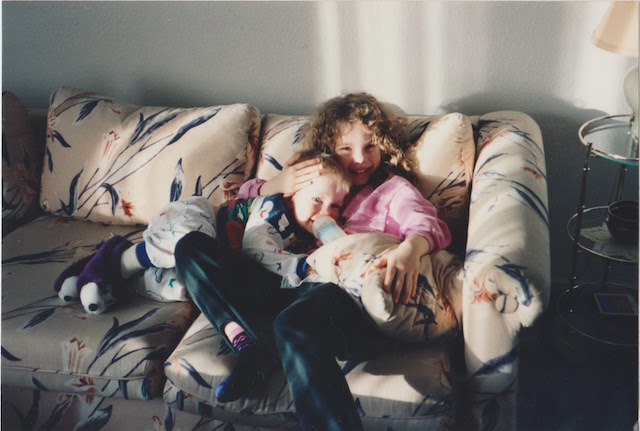It has now been six months since my 24-year-old brother suddenly passed away.
Time and life keep marching forward, notwithstanding his absence here. The pain of losing him has not so much diminished as it has evolved, merging into the person I am today.
His death uprooted me to my core, but in time (and to my surprise), I found myself able to eat again, then laugh again, and then even find glimpses of joy and hope again.
Six months and a lot of reflection later, I am now able to put into words six key observations I’ve made since his death:
1. Live one day at a time.
Before my brother died, I was often hard on myself for not being far enough along on my career path. I was unsatisfied with where I was, believing I should be more successful at this point.
My brother suffered from chronic back pain, mental health issues, and alcoholism. I know my brother was far too tough on himself, in a way that only those who have suffered from addiction can understand.
During his final years, he was struggling to complete his degree, often to the detriment of his sobriety and health.
He wrote about the inability to live one day at a time, always living in the past or the future, and carried a reminder with him to try to shift this pattern—but it proved a hard habit to break.
I learned after his death that he always regarded me as successful, even though I didn’t perceive myself that way. Learning this opened my eyes: I held his same struggle within me, the struggle with feelings of inadequacy.
Whether we are trying to conquer an addiction, reclaim our health, or seek a career change, we must remember that at the heart of all personal growth is living one day at a time. Each day is a different day that we can focus on the pursuits that drive us, rather than just thinking about where they will bring us in the future.
2. Don’t presume to know other people’s battles.
I didn’t fully grasp the depth of his experience in life, despite having grown up together and been close our whole lives, both as children and adults. I struggled to understand what he was going through, feeling everything from frustration, to empathy, to torn apart.
I don’t know if anyone really understands my experience right now, nor do I expect that we truly understand anyone’s, even if they choose to share it with us.
We don’t know why people make the choices they make or behave the way they do, because we have not had the same life experiences or mental conditioning. This is true regardless of whether someone is dear to us or they’re a perfect stranger.
It does not serve us to make assumptions about others.
“Everyone you meet is fighting a battle you know nothing about. Be kind.”
3. We can still redefine our idea of living well.
My brother strived for high ideals he was not always able to meet—and never will now.
But I am still here. I can still choose to treat my body well, to seek whatever it is that brings me wellness and happiness, be it meditation, yoga, dancing, writing, sleeping, eating well, being sober, going outdoors, being social, or being alone.
Seeing that our loved one will never have the opportunity to redefine how they live can serve as inspiration for those of us that are still here. We still have time to break negative cycles, to seek that what brings us health and joy, and to share so that others may benefit.
4. There is profound value in the relationships we cultivate and encounter in this lifetime.
After he passed away, a period of renewed closeness grew within my family, encouraging us to make the most of our time together, conscious now how fragile life is. I was also deeply affected by the love and support of many others around me.
The time after a loved one’s death is the time to nurture our roots and to be open to the relationships that matter most. However, don’t discount the comfort one can find from a relative stranger: the world craves connection, and sometimes we may be surprised to find that those we know the least may offer the most.
5. It is okay to not be okay.
I have never been as not okay with anything in my life up to this point. But getting used to not being okay has helped me forge a new okay—and that’s exciting.
When someone asks how we are doing, the expected response is usually “good” or “well,” or perhaps “okay” or “not bad.” Many of us fear being perceived as negative or as a complainer if we reveal otherwise.
But sometimes, we are not okay. Life is not always okay. We need to get comfortable with that fact and help others to become comfortable with it as well.
6. Growing old is a gift.
My brother’s death heralded my first grey hair. My husband calls it “Matt’s hair.”
But aging doesn’t worry me. I turn 32 this month, but my brother will forever be 24.
Growing older means that we have been given more time here to spend with those we love. Not everyone will have that same time, so we must cherish it.
“Do not regret growing older. It is a privilege denied to many.”
~
~
Author: Lana Gonzalez Balyk
Image: Author’s own
Editor: Callie Rushton
Copy Editor: Yoli Ramazzina
Social Editor: Waylon Lewis











Read 14 comments and reply